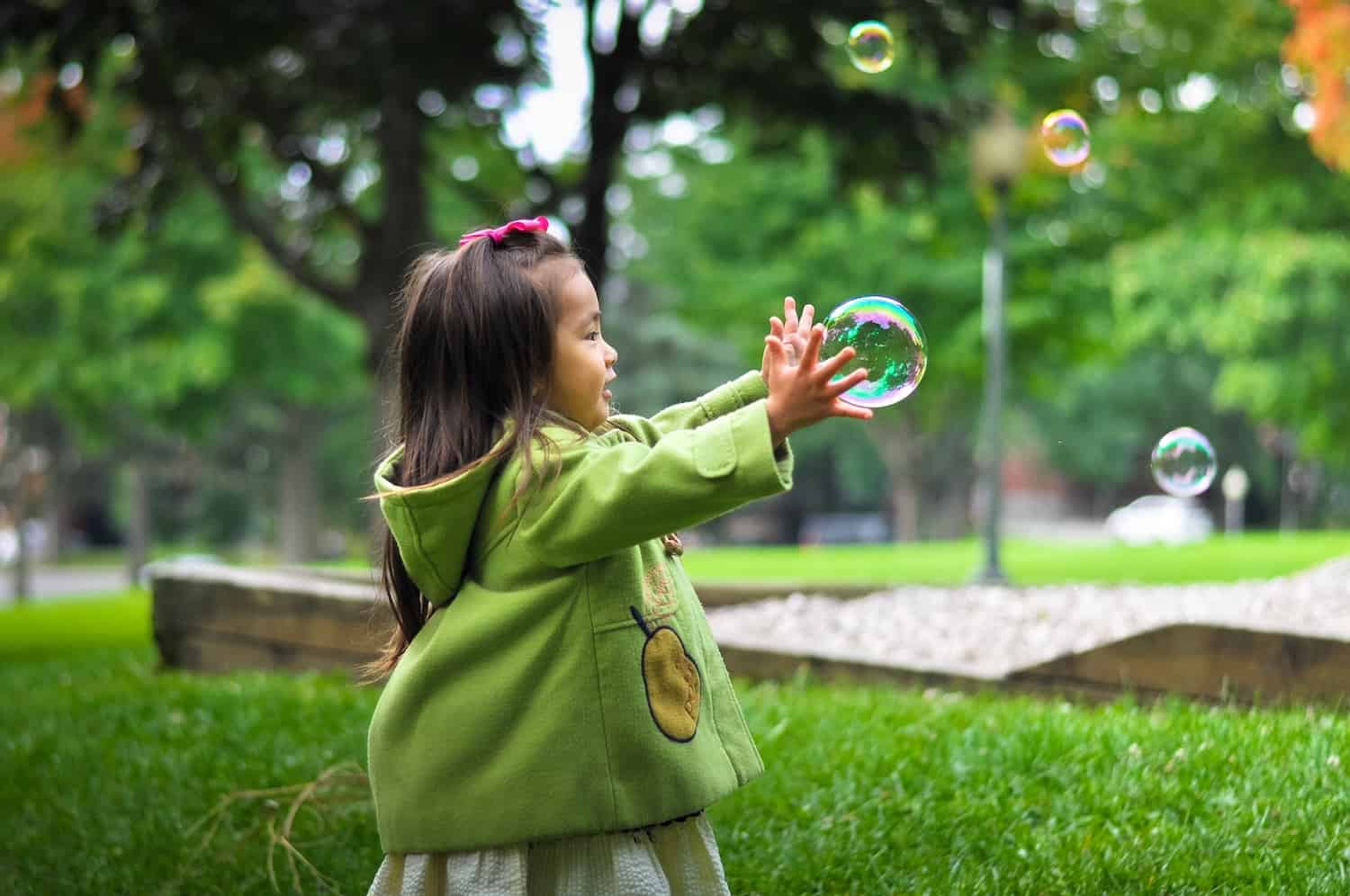When I was a little girl, my family took turns praying around the dinner table. One night, after giving thanks for our food, I prayed that every single street child in the Philippines would find something to eat for dinner.
Let me give you some context. Born and raised in Manila, I saw abandoned children everywhere—naked toddlers sleeping under bridges, homeless kids begging for pesos, young girls roaming the alleys at night. It’s haunting to lock eyes with a child your own age through a car window, and know that while you’re safe in the car with Dad, she’s begging for change in the dark.
So that night at dinner, I prayed for something that seemed completely reasonable to me. I prayed God would provide a meal for 1.2 million children.
When I opened my eyes, I noticed my parents and older sister exchanging glances. They were smiling, almost chuckling a little. “What are you all laughing at?” I accused.
“Nothing sweetheart,” my dad said. “You’re just so cute.”
I’ll never forget that moment.
My parents are the strongest believers I know. I can say that with confidence because I’ve had a backstage pass to their lives for decades. But that day, I learned something they never meant to teach me. I learned that Christians are supposed to say God can do anything, but we’re not supposed to actually believe it. If we do, we’ll look foolish.
In Matthew 5:8 Jesus says, “Blessed are the pure in heart, for they shall see God.” This verse makes me think of children. That night at dinner, I prayed for something outlandish and unlikely because I saw God in a way the older members of my family no longer saw Him.
Sometimes I catch myself wondering if He answered my prayer. I wonder if a million kids had dinner because of the faith of a child. Then deep down I think, “Maybe. But probably not.” Now, as an adult, I see the implausibility — the reality that street kids have pimps who control the food, or parents who will trade it for something else. But once upon a time, I didn’t see the obstacles.
I just saw God.
To be “pure” is to be uncontaminated; unsullied by worldly influences, doubt, and cynicism. How do we raise pure kids when innocence is a naturally diminishing quality?
The goal is not to send teenagers off to college still believing in the tooth fairy, but rather to help children grow up in biblically-sound, age-appropriate ways. To that end, here are a few pointers I’ve picked up from conferences, wiser parents, and my own mom and dad:
Learn to recognize and avoid age-compression. If you’ve never Googled it, age-compression is a real and current social trend. When Barbie was first released, Mattel’s target demographic was 9-12 year old girls. Today, the primary consumers of Barbie are 3-5 year olds. Beyond the age of seven, toy makers are discovering that interest in toys radically declines in lieu of makeup, music, and digital gaming. Nearly every old-school toy company (think Playmobil, Legos, Cabbage Patch Kids) has found a way to digitize their product in order to remain relevant.
It’s not just toys. It’s clothing, entertainment, social media. Kids are growing up faster than ever. The good news is, parents can push back against age-compression by normalizing and encouraging “younger” activities. If you have an eight-year-old, think about what you did when you were eight. Climb trees? Play in the dirt? Ride your bike to the library? Do those things with him or her. And certainly don’t shame a child for wanting to be a child. I’ve talked to parents who were concerned because their twelve-year-old still plays with dolls. “That is such a gift!” I said. “Let her play with them as long as possible.”
Encourage uninhibited communication. Nothing is off-limits. You can ask or tell me anything. We don’t keep secrets in this family. These are things we say all the time at our house. In fact, occasionally Clint will ask, “Does anyone have a secret you need to share with me? Anything at all you want to tell me?” We want to have a constant gauge of our children’s inner world—the things they’re processing and experiencing—so that we can protect and shepherd them well.
Cultivate a culture of grace. Once, when I was twelve, my mom said something off-handedly that I’ve never forgotten. She had already taught me about sex, abstinence, and purity. Then one day she said, “I just want you to know that if you ever mess up and find yourself pregnant, come to me. I will help you and love you no matter what. Come to me.”
This is how we champion purity in children. Not with shame and fear, but with grace-centered truth. We teach them intentionally, push back against culture, and love them when they fail.
Marvel alongside them. Just because you’re leading your children doesn’t mean you can’t learn from them. Once, in the middle of a fight about which disciple was the greatest, Jesus called over a child and said, “Unless you turn and become like children, you will never enter the kingdom of heaven” (Matthew 18:3).
He wasn’t saying kids are sinless. Everyone is born broken, having inherited a sin nature from Adam (Romans 5:12). But there is a humility intrinsic to childhood. Kids are naturally inquisitive; they don’t assume they have all the answers. They trust without question and believe without qualifiers. They ask God for big things, like 1.2 million happy meals, until we teach them to tone down their prayers. To dial down their faith.
Oh, that it would work the other way — that we would turn and become like children. That we would learn from them, marvel alongside them, and see God through their eyes.





